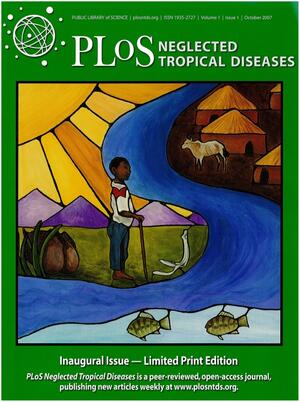
Dairy response to feed supplementation and helminth control in indigenous cattle in traditional systems in West Africa: A case study from Nigeria
Abstract
Inadequate nutrition and helminthiasis were among the important constraints to smallscale dairy production identified in a 4-country survey among traditional dairy producers. Consequently, multi-locational trials to study helminth control and supplementary feeding to grazing cattle are being implemented in the 4 countries, Ghana, Senegal, Mali and Nigeria. In one such trial in Nigeria, 60 lactating cows of the Bunaji breed were studied in a 2x2 factorial design (supplement, no deworm (T4)). The supplement was provided during 2 periods of 6 wk duration each and cows were dewormed 3 times during a 10-mo trial period. The supplement was dry brewer's spent grain (24 percent CP) fed at 4 kg/d. The dewormer drug was Albenzal adminstered at 250 mg/kg. Cows consumed an average of 3.5 kg/d of the supplement. Mean monthly milk offtake extracted from cows in group T1, T2, T3, and T4 during the first 2 mo of supplementation and 1 mo after initial deworming were 42.1, 46.4, 45.9 and 40.8 kg (S.E.=4.25), respectively, which were 8, 6, 5 and 0 percent increase over pretreatment values. Weight gains in suckling calves in these groups were 12.9, 7.0, 6.1 and 4.3 kg (S.E.=0.68;P<0.001) which were 13, 11, 10 and 4 percent increase over initial weights. The results at the end of the 10th mo were consistent with those of the initial 3 mo as growth in calves to this time were 27.9, 11.6, 14.5 and 6.0 kg (S.E.=1.05;P<0.001). These results suggest that helminth control and supplementary feeding have additive effects and could be recommended as a strategy to boost dairy productivity.
Citation
Journal of Dairy Science (Supplement 1);80: 231









